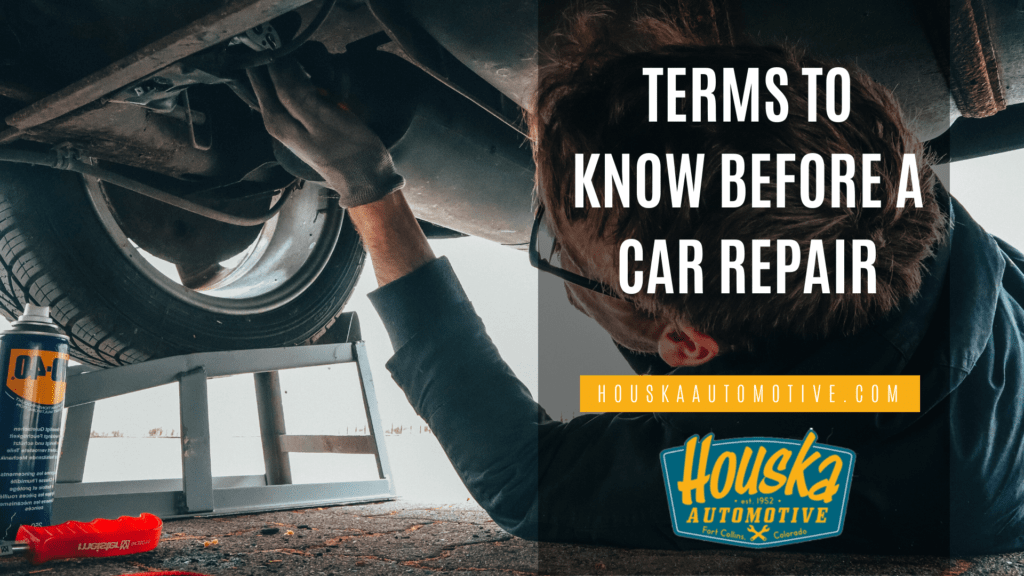Going to an auto repair shop can be intimidating. Unless you’re a car junkie, some of the terms or jargon used in a tech’s diagnosis can seem like a foreign language. Here’s a list of a few of the most common terms and phrases used by techs to make sure you’re understanding their language!
- Diagnostic Test: You’ve probably heard the term, but what exactly is being done? When a tech runs a diagnostic test it means he’s using special software to link to your vehicle’s built-in processors, microchips and sensors to pinpoint problems in the engine, transmission, brakes or elsewhere. It can also detect performance problems with the fuel injector and throttle.
- Spongy Brakes: This is not referring to the actual brake pads. It’s actually referring to the brake pedal losing its resistance when you press down on it, giving it a spongy feeling.
- Torque Steer: Most common in front-wheel drive cars, it’s the tendency for a car to pull to one side during heavy acceleration.
- OEM: An abbreviation that stands for Original Equipment Manufacturer. This refers to manufacturer-approved parts specifically made for a vehicle’s make and model.
- Aftermarket Parts: Automobile parts made by a third-party manufacturer, not originally installed in your car. Aftermarket parts usually offer comparable quality, but may affect insurance coverage.
- Play: If a tech tells you a car part has “play” that means there is excessive movement where there shouldn’t be. For instance, the steering wheel may move quite a bit (have a lot of play) before the tires start to turn.
- TSB: This stands for Technical Service Bulletins which are directions provided by manufacturers to auto repair shops on how to fix known concerns with vehicles. These are not to be confused with recalls.
There are plenty more, but the most important thing is–if there is a term you don’t understand, don’t be afraid to ask! Houska’s techs always make an effort to explain what is going on with your vehicle in the simplest terms, and make sure you understand what repairs need to be done before they start.

